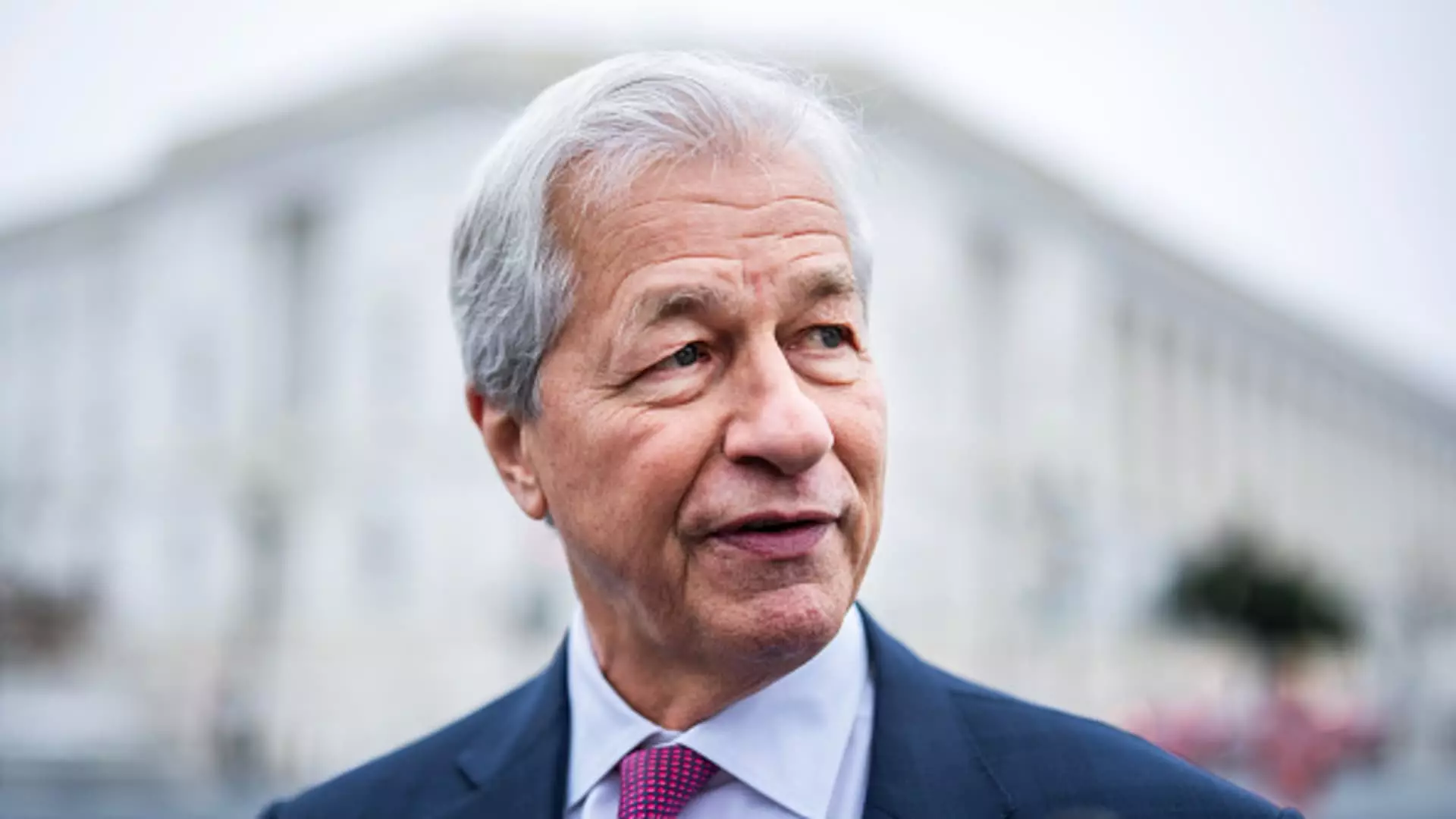Under the relentless scrutiny of public opinion, government efficiency has become a focal point for discourse among corporate leaders and policymakers alike. Recently, Jamie Dimon, the CEO of JPMorgan Chase, weighed in on this pressing issue, asserting the government’s inefficiencies and inadequacies during an interview with CNBC. This article examines Dimon’s insights and the broader implications of his statements on the quest for an effective government.
During the interview, Dimon highlighted a troubling picture of the U.S. government, characterized by inefficacy and incompetence. While he did not endorse Elon Musk’s new initiative aimed at improving government efficiency outright, he nevertheless acknowledged the necessity of re-evaluating how public funds are utilized. “The government is inefficient, not very competent, and needs a lot of work,” he remarked, underlining the urgent need for reform. This statement resonates with many who have witnessed the government’s struggle to balance budgets while delivering essential services.
Dimon’s critique points to a systemic issue: the government’s challenges go beyond mere waste and fraud; they extend to the very outcomes of policy implementation. By questioning the legitimacy of expenditures and calling for a reassessment of governmental frameworks, he invites discourse about accountability and effectiveness in public administration.
A significant takeaway from Dimon’s commentary is his emphasis on outcomes rather than just expenditures. The argument he posits asks critical questions: “Are we getting what we deserve?” and “What should we change?” These inquiries are crucial as they redirect the focus toward results and the impact of policy decisions on American citizens. It calls for a reevaluation of initiatives and programs to ensure that taxpayer dollars contribute positively to society.
Moreover, the acknowledgment of the current administration’s efforts to reevaluate federal spending underscores the dilemma many governments face in balancing fiscal responsibility with public service. As Dimon suggests, it’s not simply an issue of trimming budgets—it’s about instituting policies and practices that truly serve the electorate.
While Dimon expresses hope for the success of such reform initiatives, he also indicates a word of caution regarding the extremity of the measures taken. His comments reflect an understanding of the judicial system’s role in regulating executive actions, stating that any overreach or illegal activity by agencies such as the Department of Government Efficiency (DOGE) can and will be checked by the courts. This highlights an essential feature of a well-functioning democracy: the checks and balances that protect against the misuse of power.
As Jamie Dimon articulates the pressing need for governmental reform amidst a backdrop of inefficiency, it sets a momentum for wider discussions on public sector accountability. His perspective serves not only as a critique but also as a clarion call for a transformation in how government operates to better serve the American public. The interplay of corporate insight into public governance plays a crucial role in redefining standards and expectations in government operations, ultimately forging a path toward a more effective and responsible administration.

